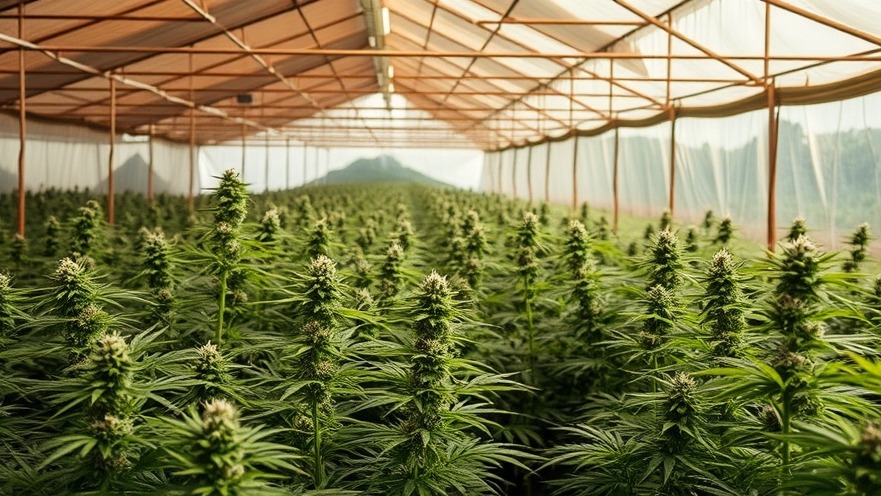
A Pivotal Moment for Texas Hemp: Understanding the Regulatory Landscape
As the Texas hemp industry stands at a crossroads, recent developments present a fresh opportunity for growth amidst changing regulations. After Governor Greg Abbott vetoed Senate Bill 3, which aimed to ban THC products like delta-8 and delta-9, industry leaders saw a glimmer of hope. The anticipated special session on July 21 is set to carve out a new regulatory framework, echoing how alcohol is currently managed in the state. This shift reflects a broader understanding of the cannabis industry’s complexities and the need for thoughtful governance.
Why Age Restrictions Matter in Texas Hemp Regulations
Among the notable suggestions from Gov. Abbott is the implementation of age restrictions, with many stakeholders advocating for raising the minimum purchase age of THC products to 21. Currently, no official age limit exists, leaving room for confusion and potential access to minors. Sydney Torabi, co-founder of Restart CBD, emphasizes that while regulations are welcome, defining effective regulations is crucial to protect consumers. Striking a balance ensures that products remain accessible to adults while keeping them out of the hands of younger individuals.
The Importance of Enforcement: Closing Regulatory Loopholes
While existing legislation such as the Texas Hemp Farming Act has laid some groundwork for the industry, it has simultaneously exposed vulnerabilities within regulatory enforcement. Mark Bordas, the executive director of the Texas Hemp Business Council, points out that the state currently employs only four full-time officers to monitor over 8,000 licensees. This limited oversight raises concerns about compliance and safety, as producers have found ways to circumvent THC limits. In light of this, industry leaders are calling for strengthened enforcement mechanisms to ensure that regulations achieve their intended effects.
Balancing Interests: Diverse Perspectives in the Hemp Community
The hemp industry's stakeholders offer varied opinions on how regulations should be implemented. While many are unified in support of stricter purchasing age rules, opinions diverge on broader enforcement measures. Some growers want increased freedom in cultivating hemp without stringent oversight, while retailers push for tougher regulations on illegal sales. Understanding and navigating these contrasting viewpoints will be vital for lawmakers and regulators as they forge a responsible path forward.
Connecting Regulations to Public Safety and Consumer Trust
The conversation surrounding age restrictions and regulation enforcement is not solely about legal compliance; it extends to consumer safety and establishing trust within the market. By ensuring that THC products are sold responsibly and safely, both the government and industry players can foster trust among consumers. Public awareness campaigns will be essential in educating the public about these new regulations and safe consumption practices, ultimately promoting a well-regulated cannabis culture.
Insights from Broader Cannabis Trends
Looking beyond Texas, there are parallels in how other states are adapting to cannabis regulation. States like Colorado and California have successfully navigated similar challenges by instituting comprehensive regulations that prioritize both public health and business growth. As Texas considers its model, it may benefit from studying these examples, learning from successes and mistakes to avoid pitfalls that could stunt the hemp industry's growth.
Future Predictions: The Evolving Landscape of Texas Hemp
As Texas continues to refine its approach to hemp regulation, future trends indicate that consumer habits and preferences will likely drive legislative changes. An increasing acceptance of cannabis within society, coupled with a growing body of research pointing to its therapeutic benefits, suggests that Texas may see the expansion of hemp-related products and markets. Ultimately, successful regulation could lead Texas to become a leader in the hemp industry, inspiring innovation and economic growth.
The impending regulatory landscape is not just an industry concern but a reflection of broader social attitudes towards hemp and cannabis. Whether you're a consumer, a business owner, or a policymaker, staying informed about these changes is essential to navigate the evolving Texas hemp scene.
As these discussions unfold, it's imperative for Texans to voice their opinions and engage in this critical aspect of local governance. Share your thoughts on how regulations should be shaped for a responsible hemp industry! Your perspective is valuable in shaping the future of cannabis in Texas.
 Add Element
Add Element  Add Row
Add Row 



Write A Comment